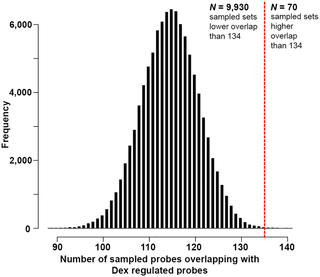PLOS Biology ( IF 7.8 ) Pub Date : 2017-12-28 , DOI: 10.1371/journal.pbio.2002690 Tania Carrillo-Roa , Christiana Labermaier , Peter Weber , David P. Herzog , Caleb Lareau , Sara Santarelli , Klaus V. Wagner , Monika Rex-Haffner , Daniela Harbich , Sebastian H. Scharf , Charles B. Nemeroff , Boadie W. Dunlop , W. Edward Craighead , Helen S. Mayberg , Mathias V. Schmidt , Manfred Uhr , Florian Holsboer , Inge Sillaber , Elisabeth B. Binder , Marianne B. Müller

|
Response to antidepressant treatment in major depressive disorder (MDD) cannot be predicted currently, leading to uncertainty in medication selection, increasing costs, and prolonged suffering for many patients. Despite tremendous efforts in identifying response-associated genes in large genome-wide association studies, the results have been fairly modest, underlining the need to establish conceptually novel strategies. For the identification of transcriptome signatures that can distinguish between treatment responders and nonresponders, we herein submit a novel animal experimental approach focusing on extreme phenotypes. We utilized the large variance in response to antidepressant treatment occurring in DBA/2J mice, enabling sample stratification into subpopulations of good and poor treatment responders to delineate response-associated signature transcript profiles in peripheral blood samples. As a proof of concept, we translated our murine data to the transcriptome data of a clinically relevant human cohort. A cluster of 259 differentially regulated genes was identified when peripheral transcriptome profiles of good and poor treatment responders were compared in the murine model. Differences in expression profiles from baseline to week 12 of the human orthologues selected on the basis of the murine transcript signature allowed prediction of response status with an accuracy of 76% in the patient population. Finally, we show that glucocorticoid receptor (GR)-regulated genes are significantly enriched in this cluster of antidepressant-response genes. Our findings point to the involvement of GR sensitivity as a potential key mechanism shaping response to antidepressant treatment and support the hypothesis that antidepressants could stimulate resilience-promoting molecular mechanisms. Our data highlight the suitability of an appropriate animal experimental approach for the discovery of treatment response-associated pathways across species.
中文翻译:

与小鼠和人类抗抑郁反应相关的常见基因确定了糖皮质激素受体敏感性的关键作用
目前尚无法预测对重度抑郁症(MDD)的抗抑郁治疗的反应,这导致药物选择的不确定性,成本增加以及许多患者的痛苦加剧。尽管在大型的全基因组关联研究中为识别与反应相关的基因付出了巨大的努力,但结果仍然相当有限,强调了建立概念上新颖的策略的必要性。为了鉴定可以区分治疗反应者和非反应者的转录组特征,我们在此提出了一种关注极端表型的新颖动物实验方法。我们利用DBA / 2J小鼠对抗抑郁药治疗的巨大差异,使样品分层为好反应者和差反应者的亚群,以描绘外周血样品中与反应相关的签名转录物谱。作为概念的证明,我们将鼠类数据翻译为临床相关人群的转录组数据。当在鼠模型中比较好反应者和差反应者的外周转录组谱时,鉴定出259个差异调节基因簇。基于鼠转录本签名选择的人类直向同源物从基线到第12周的表达谱差异,可以预测患者群体中应答状态的准确性,为76%。最后,我们显示糖皮质激素受体(GR)调控的基因在此抗抑郁反应基因簇中显着富集。我们的研究结果表明,GR敏感性是影响抗抑郁药治疗反应的潜在关键机制,并支持抗抑郁药可能刺激促进弹性的分子机制的假说。我们的数据强调了适当的动物实验方法对于发现跨物种的治疗反应相关途径的适用性。











































 京公网安备 11010802027423号
京公网安备 11010802027423号